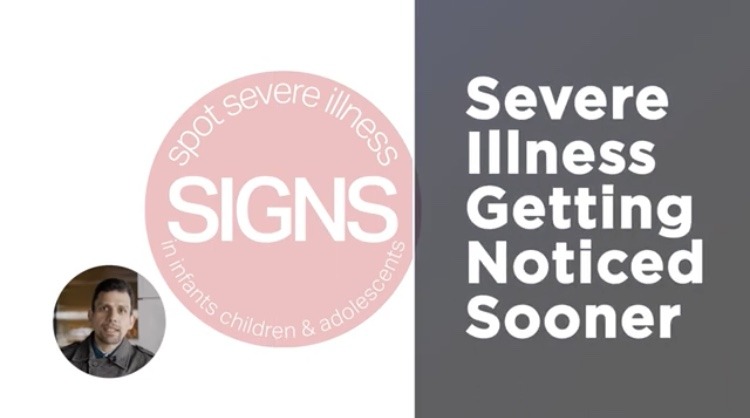
Creating positive sleep habits for your child

Dr. Anya McLaren-Barnett
Achieving consistent sleep is vitally important to a child’s overall health. It has a direct impact on their physical and mental well-being and can affect academic performance and social interactions. It can be difficult for parents and caregivers to know where to start to help their child form healthy sleep habits. Dr. Anya McLaren-Barnett, a pediatric respirologist and sleep medicine physician at Hamilton Health Sciences’ McMaster Children’s Hospital, provides a variety of tips and recommendations on how to help ensure your child is getting the sleep they need.
Back-to-school sleep routine
Sleep schedules and routines often change in the summer months when children tend to stay up later and sleep in. Transitioning to a desired back-to-school sleep schedule can prove to be a challenge for many parents and caregivers. Here are three strategies to consider when working toward this transition.
Strategy #1: Gradual adjustments are key to transitioning any sleep routines. A child’s body needs time to adjust to these changes, so starting the whole process a few weeks before school starts can help ease them into their new routine. You should begin waking your child approximately 15 – 20 minutes earlier every few days until you get to the desired wake time for school.
Strategy #2: Expose your child to bright light as soon as they wake up. Sunlight is the best option where possible. The light will help to gradually shift their internal sleep clock as they adapt to the new back-to-school sleep schedule. This will also help them to fall asleep earlier at night.
Strategy #3: Create a consistent bedtime and bedtime routine that stays the same on both weekdays and the weekend. Incorporate calm activities in their bedtime routine to help your child relax before going to bed.
It is important to prioritize creating and maintaining healthy sleep habits for your child to positively impact their overall well-being.
Creating Positive Sleep Habits
Creating and protecting positive sleep habits for your child is essential for helping them stay healthy. Here are four tips on how to set them up for sleep success.
Tip #1: Create a sleep environment that is comfortable and cozy for your child. A bedroom that is free of clutter, has a good quality and comfortable mattress as well as appropriate bedding can help encourage quality sleep. It is also important to keep their bedroom dark, cool and quiet.
In addition, bedtime routines should be kept screen-free and include calming and relaxing activities to promote better sleep.
Tip #2: A consistent sleep schedule is essential in helping your child achieve a good sleep. Bedtimes between weekdays and weekends should be as close as possible, differing no more than an hour in total. This helps to regulate their internal sleep clock so that your child can get the amount of sleep that they need.
Tip #3: Screens are everywhere these days! It is important to limit screen time when leading up to your child’s bedtime. Screen use, such as tablets, computers, televisions, etc. should stop at least one hour before your child’s bedtime. Our bodies produce melatonin to assist in sleep, however the blue light that is emitted from screens can interfere with that melatonin production, thereby impacting your child’s ability to fall and stay asleep.
Tip #4: Regular exercise during the day is beneficial in so many ways, but vigorous exercise too close to bedtime can start to interfere with your child’s ability to sleep. It is important to create a balance of relaxation and play to help the body naturally wind down at the end of the day. Try to reduce any excessive exercise at least a few hours prior to bedtime.
Red flags for sleep issues
Identifying red flags in your child’s sleep patterns can help you assess when it’s time to seek help from your child’s health-care provider. Here are five red flags to watch out for when observing your child’s sleep habits.
Red Flag #1: Your child is getting sufficient sleep at night but still appears quite tired during the day.
Red Flag #2: Your child is tired during the day and finds it difficult to stay awake.
Red Flag #3: Your child is experiencing frequent awakenings at night. Brief waking moments can be common, but if they become consistent it may point to other underlying issues.
Red Flag #4: Your child is experiencing frequent, prolonged difficulties falling asleep.
Red Flag #5: Your child is snoring more than three nights a week. When a child is unwell snoring can be a normal side effect, however if they are frequently snoring when well it may be a sign of sleep apnea.
Melatonin
Our brains produce a hormone to help us sleep called melatonin. Health-care providers may suggest melatonin supplementation for individuals experiencing sleep issues. Before providing melatonin to your child be sure to consider these four tips, and speak to your child’s health-care provider to help address any questions or concerns you may have about your child’s sleep habits.
Tip #1: First focus on creating consistent sleep habits throughout the week and on weekends. Sticking to an appropriate bedtime, following a consistent routine that incorporates calming and relaxing activities before bed, and maintaining a comfortable sleep environment can often help with many sleep issues.
Tip #2: Speak with your child’s health-care provider (i.e. pediatrician or family doctor) prior to starting your child on melatonin supplementation. They can help evaluate your child’s overall health as well as their sleep habits and patterns to determine whether there are any other underlying issues that might affect their quality and quantity of sleep. Every child and situation is different, so it’s important to receive the personalized advice and care that only they can provide.
Tip #3: If your child’s health-care provider suggests melatonin, be sure to follow the dosage they prescribe. Dosages can vary for each child, and more isn’t always better.
Tip #4: Melatonin should be used as a temporary solution and not a long-term sleep aid. Achieving your child’s natural sleep rhythm is the ultimate goal.
For more personalized sleep advice for your child, reach out to their primary health-care provider.





